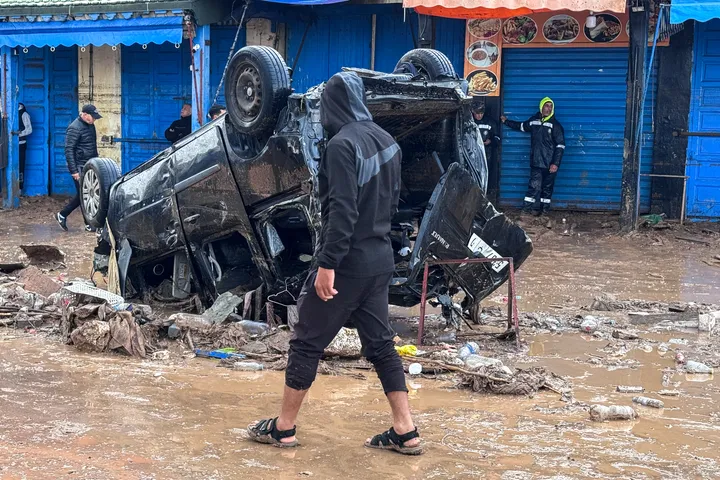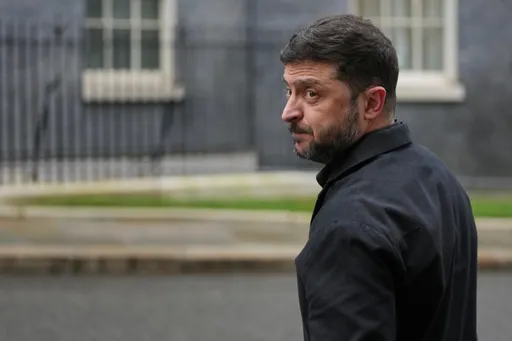You might have gone through trust issues in the past in marriages, friendships, or even while conducting day-to-day business like during fruit or vegetable shopping.
While we grapple with issues that are byproducts of modern times, trust is an eternal life question that goes back to ancient times.
Ancient Rome’s greatest general Julius Caesar was infamously betrayed by his step-son Brutus, whom he considered his successor. For Caesar and his supporters, Brutus’s cooperation with pro-Republican senators against the newly declared-lifelong dictator was a great violation of the general’s trust in him.
But for Brutus and his supporters, that was an act of saving the Republic against tyranny.
So, as Caesar's case shows, trust and betrayal can have different interpretations.
Despite all complexities of our lives, there are at least some simple ways to feel where trust has been stored.
Here are some basic clues:
Can you trust yourself?
Trust is always a two-way road. It means having relationships on the basis of good and honest communication with others.
Experts think that to communicate with others properly, you need to develop a genuine trust for yourself. If you could not understand your own capabilities and character, it would be difficult to trust others, experts say.
“Although it’s true that cooperation and vulnerability require two parties, no one ever said that the two parties had to be different people. To the contrary, the parties can be the same person at different times,” wrote David DeSteno, a psychologist and the director of Northeastern University’s Social Emotions Lab, in his book,The Truth About Trust: How It Determines Success in Life, Love, Learning, and More.
While we always tend to blame others, most of the time, the real perpetrator behind trust issues might be ourselves, according to the psychologist.
“Each of us is never just an observer trying to ascertain whether someone else is to be trusted; we’re also targets of observation ourselves. The same forces that determine whether someone else will be honest or loyal also impinge on our own minds,” DeSteno viewed.
Are you a little anxious?
Experts think that people who show different traits of anxiety usually appear to hide things from others, indicating signs of a trust deficit. But the reverse is also true. If you show too much distrust, you also become an anxious person.
As a result, feeling anxious is central to understanding our trust issues.
“We expected that when experiencing lower levels of trust, anxiously attached individuals would report higher levels of both cognitive and behavioral jealousy as well as partner abuse perpetration,” wrote Lindsey M. Rodriguez, Angelo M. DiBello, Camilla S. Overup and Clayton Neighbors, authors of a prominent psychological study on the relationship between trust and anxiety.
In the end, we all tend to trust people who have a calm manner.
We would avoid buying fruits from a greengrocer who usually yells at buyers. Or perhaps we would not want to be driven around the city by a driver known for rash driving or a tendency to curse irrationally as he drives.
Anger and anxiety do not always mean distrust. It could also show a trait of genuine trust in certain occasions and could end up with “positive long-term effects” depending on different situations, according to a 2002 study, which is titled When Anger’s a Plus.
If someone attacked a child, what would a parent do? They would not thank the aggressor, instead, they would do everything they could to repel the attacker. In turn, this would strengthen a child's trust in their defender and nourish the family bond.
“We are hard-wired to pick up facial cues related to anger, and perception of these cues is an important aspect of social communication. The experience of, or expression of anger, communicates to others that we are unhappy with their behavior, or that we perceive their actions to be unjust or unfair,” said Scott Wilson, a clinical psychologist.
Law & Order
Trust is also linked with a strong sense of socially accepted principles and a predictable governance with established rules.
For instance, anti-maskers endanger public health during a deadly pandemic and spread distrust in society. At the same time, people still want to go out because they show faith in the system and hope law enforcement officials would punish those who violate the mask wearing rule.
While countries have different government types and social traditions, at the end of the day, a citizen’s trust of a system matters most, according to Francis Fukuyama, a prominent political scientist and the writer of Trust: The Social Virtues and the Creation of Prosperity.
“(T)rust is the single most important commodity that will determine the fate of a society,” wrote the American writer.
Did Covid-19 decrease levels of trust?
Experts havepointed out that Covid-19 is not just an enemy of all nations but also many friendships, forcing people to stay at home, leaving social relationships in the lurch.
“The psychological effects of losing all but our closest ties can be profound. Peripheral connections tether us to the world at large; without them, people sink into the compounding sameness of closed networks,” wrote Amanda Mull, a writer at the Atlantic.
“People on the peripheries of our lives introduce us to new ideas, new information, new opportunities, and other new people. If variety is the spice of life, these relationships are the conduit for it,” Mull added.
Respect matters
If someone is disrespectful to others, he or she would not be trusted no matter how powerful the person might be. Whether the disrespect comes from a boss or a best friend, it signals that something has gone terribly wrong in the relationship.
“People who are trustworthy respect who you are. When a person respects you, they are kind and considerate. Their respect is a sign that they are willing to do right by you, that they have your well-being front of mind,” wrote Kate Siner, a psychologist.
“And that lack of respect should be a clue that this person is likely not to do right by you,” she added.
Preserving your own dignity by not losing self-respect is also important.
“I cannot conceive of a greater loss than the loss of one’s self-respect,” said Mahatma Gandhi, an Indian leader and a prominent activist for peaceful resistance.
























